Law 159 of August 31, 2020
Through Law 159 of August 31, 2020, the Special Regime for the Establishment and Operation of Multinational Companies for the Provision of Services Related to Manufacturing (EMMA), was created.
Its purpose is to attract and promote investments in production processes and the generation of jobs and technology transfer, as well as to make Panama more competitive.
Next, we present a summary of the main norms or provisions of this Law.
The services that are contemplated by this law are the following or a combination of them:
- Manufacture of products, machinery and equipment loaned to companies of the Business Group.
- Assembly of products, machinery and equipment loaned to companies of the Business Group.
- Maintenance and repair of products, machinery and equipment loaned to companies of the Business Group.
- Remanufacturing of products, machinery and equipment loaned to companies of the Business Group.
- Conditioning of products loaned to companies of the Business Group.
- Product development, research or innovation of existing products or processes provided to companies of the Business Group.
- Analysis, laboratories, tests or others related to the provision of services related to manufacturing provided to companies of the Business Group.
- Logistics, such as the storage, deployment and distribution center of components or parts, required for the provision of services related to manufacturing.
- Any other similar service previously approved by the Cabinet Council through a reasoned resolution, provided that it complies with the precepts set forth in this Law.
Although the services indicated in numeral 8 – logistics services – seem to be an exception, the law indicates that the function of an EMMA will be to provide services only to its Business Group.
The entity in charge of granting EMMA licenses will be the Technical Secretary of the Commission created by Law 41 of 2007. This Secretary will also have the following functions:
- Manage the visas of the staff working for an EMMA and their dependents.
- Issue the certificates in the name of EMMA under the special EMMA Visa Regime.
- Impose administrative or pecuniary sanctions on the EMMA that does not comply with applicable regulations.
- Supervise compliance with this Law by EMMA.
- Carry out all the administrative procedures for the management of the benefits of the EMMA.
- Keep the official register of the EMMA, as well as its staff and dependents.
- Develop the forms, guides and / or instructions that the EMMA must submit and / or use.
- Resolve in the first instance the claims or appeals filed based on this Law.
For the purposes of registration and/or procedures of this Law, the Single Window for Investment Procedures of the National Directorate for Investment Promotion, created by Law 41 of 2007, will be used.
EMMA’s must pay income tax in Panama on the taxable income derived from the services rendered at a rate of five percent (5%). They may include within their deductible expenses the labor remuneration of all their employees, even when the employee is exempt from income tax in accordance with the provisions of this Law.
The EMMA may also apply as an income tax credit the amount that they have actually paid for this or another similar concept, with respect to the taxable income generated in Panama derived from the provision of services to non-residents, as well as the amounts withheld by taxpayers in Panama for income tax, in accordance with this Law.
When a tax credit is applicable as stipulated in this Law, the EMMA must pay at least two percent (2%) of the net taxable income generated in Panama, as income tax.
The amounts that are considered as income tax credit may not be considered as carry-over credits in the following fiscal periods, nor may they be subject to refund.
The EMMA must report in its income statements the income attributable to said entity, following the arm’s length or arm’s length principle developed by the transfer pricing regulations.
In other words, the EMMA is subject to the transfer pricing regime in accordance with the provisions of the Tax Code. What will apply in the case of related parties established in Panama or that are tax residents of other jurisdictions or that are established in the Colon Free Zone, or that in the Petroleum Free Zone under Decree 36 of 2003, Special Economic Area Panama-Pacific, Multinational Companies Headquarters, City of Knowledge or in any other free zones or in a special economic area. The provisions of article 733-A of the Tax Code shall not apply.
The EMMA will not be subject to the use of fiscal equipment and will not have the obligation to obtain a Notice of Operation for the provision of the services derived from this Law.
For purposes of gains or losses on transfers of securities issued by an EMMA, the seller or transferor must calculate the tax on the gains obtained at a fixed rate of 2%. However, the buyer will be obliged to withhold from the seller the sum equivalent to 1% of the total value of the sale as an advance on income tax from the capital gain. All this in accordance with the Tax Code and Executive Decree 170 of 1993.
Because they are mainly export services, the services provided by an EMMA will not cause the transfer tax on movable tangible assets and the provision of services, provided that the services are provided to people who do not generate income within Panama. For this same reason, the EMMA will be exempt from the payment of the transfer tax of movable tangible assets and the provision of services for the purchase and import of goods or services in Panama.
The Panamanian taxpayer who benefits from an act or service provided by an EMMA must retain 5% of the amount to be remitted to the EMMA provided that said services or acts affect the production of income from a Panamanian source or its conservation. and their value has been considered a deductible expense by the person who received them.
People domiciled outside of Panama who present a service or act that benefits an EMMA, will be subject to income tax in Panama to the extent that such services affect the production of income from Panamanian source or its conservation and its expenditure have been considered as deductible expenses by the person who received them.
However, all income from a Panamanian source paid or credited by an EMMA that is found to be in loss to a non-resident person in Panama, is subject to the aforementioned 5% withholding.
Any EMMA that benefits from any act or loan or financing service from a person not domiciled in Panama, must retain a fee of 5% on 50% of the sum to be remitted to said person domiciled outside of Panama.
The EMMA Temporary Personnel Visa will be granted to the foreigner who provides services at an operational or training level to the EMMA, for a term of 2 years, renewable.
The EMMA Permanent Personnel Visa will be granted based on the provisions of Law 41 of 2007 and its reform, for a term of 5 years, renewable. The Law does not limit the number of extensions.
Those salaries or other labor remuneration, including salary in kind, received by persons with a Temporary or Permanent Personnel Visa from EMMA will be considered exempt from income tax, social security contributions and educational insurance, to the extent in which said salaries and remuneration are paid, assumed and recognized as personnel expense in the EMMA.
Foreign personnel who work for an EMMA, once 5 years have elapsed since the approval of their Permanent or Temporary Visa, may opt for a Permanent Residence.
Persons holding an EMMA Permanent or Temporary Personnel Visa will not be subject to the provisions of article 77 of Law 51 of 2005 on mandatory affiliation to the Social Security Fund.
Every worker holding an EMMA Permanent or Temporary Personnel Visa will be subject to the Labor Code except for the provisions of this Law.
Any worker holding a Permanent or Temporary Personnel Visa from EMMA may agree on a day other than Sunday as a mandatory weekly rest day and when Sunday is a regular work day, no surcharge will apply. Work on a weekly rest day will be remunerated with a 50% surcharge on salary. Overtime work will be remunerated with a single surcharge of 25%.
The EMMA will automatically enjoy, from the moment of their registration, the guarantees referred to in Law 54 of 1998, regulated by Executive Decree 9 of February 22, 199, or the current legislation on the subject of legal stability of investments.


